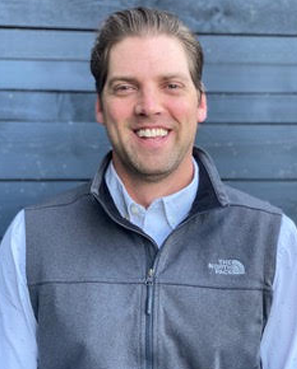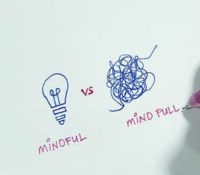By Steve Carleton, LCSW, CACIII
Executive Clinical Director, Gallus Medical Detox Centers
“You have to go home and get sicker to get treatment for your withdrawals.”
For most of my career in substance use treatment, this was the reality for many of my patients seeking help. Medically managed detox from drugs and/or alcohol is not a service commonly offered. To get this type of care, patients across the country must be in severe withdrawal before an emergency room will help. This is a tremendous barrier to recovery.
Understanding Addiction
Over the past couple decades, professionals now recognize that most substance use disorders start out as a symptom. Addiction is not about any one substance. Using becomes a way for people to manage underlying mental health issues like depression, anxiety, or trauma. And — it works very well in the short run! Self-medicating numbs emotional discomfort and pain. However, in the long term, people need more and more of the substance to get the same effect. This is where things backfire.
Clinically, addiction is defined by symptoms in the following 4 areas:
- A loss of control over one’s use patterns. Simply put, people use more than intended over longer periods of time.
- Consequences from use in social and/or occupational settings. Using creates strain on relationships with family, friends, and at work.
- Risky behaviors increase as substance use escalates. The most common examples are driving while impaired or continuing to use despite knowledge that is worsens a mental or physical illness.
- Lastly, physical dependence. A person using needs to use more and more of the substance to get the same effect. When they stop using, they go through an uncomfortable withdrawal. “Bad hangovers” are an example of this.
The frequency and intensity of these symptoms determine how severe the addiction is. Not everyone goes into severe withdrawals while quitting but when this is the case it is a significant barrier to starting recovery. The three substances known for withdrawals requiring medical detox are alcohol, opiates (i.e. heroin, fentanyl, and other pain killers), and benzodiazepines (i.e. Xanax, Klonopin, Ativan, and Valuim). Alcohol and Benzodiazepines are the two classes of substances where withdrawals can lead to death, but for opiates the detoxification process makes people feel as though they are going to die.
What are Withdrawals?
Take a minute and think about the worst flu or food poisoning you have experienced. While not identical, that level of suffering is what severe withdrawal feels like. The issue is that as a user, you know that if you just use more of the substance that feeling of intense sickness goes away, albeit temporarily. What would you do? Is that even a choice if you have a job, rent due, or kids at home depending on your income?
Detox symptoms are predictable. For alcohol and benzodiazepine withdrawals, the primary medications administered are actually benzodiazepines. They affect the brain the same way as alcohol. Patients need to be slowly tapered or weaned off these substances. Initiating IV fluids early in conjunction with medication can help quickly manage symptoms and get ahead of the withdrawals.
For opiates, the primary medication for detoxing or weaning someone off is Subutex. However, other supportive medications and expert application are needed so that person does not go into a precipitated withdrawal, which is the sudden onset of severe withdrawal caused when too much Subutex is administered to quickly.
Fentanyl, the powerful, yet devastating, new opiate that has flooded the streets, is notorious in the detox industry because of how long the drug stays in a person’s symptoms. The risk of precipitating withdrawals with Subutex lasts 72 to 96 hours after last use. For this reason, my colleagues at Gallus Medical Detox use a protocol called the Accelerated Micro Induction. Basically, this process involves using tiny amounts of Subutex and other supplemental medications immediately upon arrival. Opiate withdrawals in this protocol rarely rise above mild to moderate symptoms. Virtually all other detox facilities’ procedures involve either waiting for the person to get sick from withdrawals or starting Suboxone maintenance treatment.
Understanding Medical Drug and Alcohol Detox
Severe substance use disorders often come with a choice: get sick from withdrawals or continue to use to feel better. Many people are stuck in this vicious cycle and don’t know where to turn. Medical detox is the process where care providers use medications and other interventions to take people off drugs and alcohol safely. This level of care happens in hospitals and inpatient facilities. It is often inaccessible via most insurance plans and when available, people are only treated after symptoms become severe.
Social detox, insensitively referred to as “the drunk tank” is detox without medical intervention. In these types of settings people “sleep it off” and suffer terribly. In social detox people are only transferred to medical care if they suffer a withdrawal seizure or become violently ill. These facilities are more like jail than a hospital. Think about a warehouse with hundreds of cots lined up in rows the size of a football field. Fluorescent lights are kept on 24 hours a day and there is one TV and couch for the 200 occupants. Staffing is sparse and treatment is as cold as the concrete floor.
The Stigma of Addiction Remains
When I started out in addiction treatment in 2007 things were different. The model I was trained in was confrontational and shame-based at times. Adolescents were made to stand with their noses touching a wall and “think about their actions” if they were not taking their treatment seriously. The message across the board was “you are bad” and suffering in one way or another was the only way to get people to change.
While the therapy and treatment has become more progressive and compassionate, detoxing those experiencing severe withdrawals has not. The approach in many facilities is still to wait until a person has become physically ill before providing medical intervention. No other acute situation in medical treatment would this be acceptable.
Imagine for a minute that you had surgery. Predictably, there will be pain associated with making an incision and starting the procedure. It would be criminal if a doctor waited for you to experience the pain before giving you anesthesia. Pain is predictable in both a surgical procedure and in withdrawals from substances. Intuitively we need to be proactive in the management of both. But, that is not what happens.
The stigma of addiction is alive and well. Despite general knowledge that it is driven by underlying mental health issues, society blames the one using. “They did it to themselves.” “It’s their fault this happened.” The judgment is that those with a substance use disorder are weak, failures, and losers. “The only way they will learn or get better is if they hit rock bottom.”
Again, nowhere else does this attitude exist in the same way. If a child starts to struggle in school and is diagnosed with dyslexia, would we wait until they failed out of school and felt terrible about themselves before we helped? No. That student would hopefully be offered significant supports and get connected to professionals to design a plan to educate the student at the moment of awareness and diagnosis.
Understanding Quality Detox Care
The first question a person should ask when trying to find detox services: Are you proactive in your approach to symptom management? If the answer is not a resounding yes then it is not a good one. In an instant you will understand if they are going to treat you with compassionate care or use a “let’s wait and see how sick you get before we give you medicine.”
Having a structured environment to provide this care is essential. Is it possible to wean yourself off these substances? Yes> Though it is difficult and dangerous to measure and manage alone. Often “at home detox” perpetuates the problem and ends poorly.
If I were to write something on the walls of every Gallus Medical Detox it would be “the only predictor of success in recovery from substances is connection.” To recover, people must get connected to professional or peer support. Detox is the almost always the first major hurdle. People lose trust in professionals and treatment when they must beg for help and are immediately labeled “drug seeking.” Of course they are seeking medication! They are suffering from withdrawals and uncontrollable urges to use more. Building healthy connections and relationships in a detox setting sets the foundation for what happens next in their recovery.
When hiring new staff, the founder of Gallus Medical Detox frequently said, “I want great acute care nurses that are also kind.” This is critical in detox. Following medication protocols is difficult and the first impression with the patient must be compassion. Trust and confidence in providers leave a patient feeling as though recovery is possible. If we make a great first impression the patient is going to be more open and consider continuing in treatment when their detox is complete.
In the end, a quality detox will do two things well: provide medical intervention that eliminates any unnecessary pain and suffering and connect the patient to ongoing treatment and/or support that decreases the likelihood they return to use.
 About the Author
About the Author
Steve Carleton LCSW, CACIII. Prior to being the Executive Clinical Director at Gallus Medical Detox Centers, Steve worked in the Department of Veterans Affairs for 10 years. He is a PTSD and substance use disorder expert with over 16 years of experience in and around addiction. Steve is also an Adjunct Professor at the University of Denver’s Graduate School of Social work. He teaches cognitivebehavioral therapies, Motivational Interviewing, and assessment skills using DSM-5, amongst others.
Gallus Detox Centers offer customized medical detox programs for alcohol and substance use disorders utilizing our proprietary Gallus Method, which prioritizes our patients’ comfort and relief from withdrawal symptoms. Gallus has locations in Phoenix, Denver, Nevada, San Antonio and Dallas. Visit www.gallusdetox.com or call 866-272-5978.



































